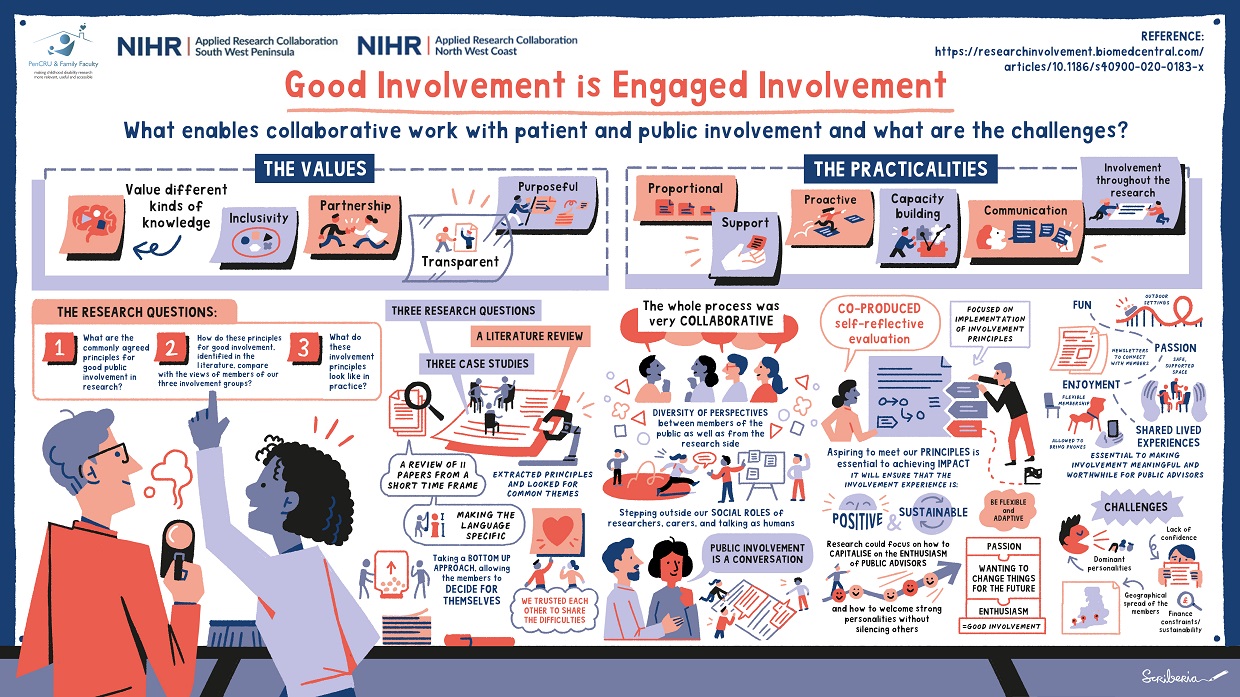Doctors are trained to understand a patient’s needs. But what happens if clinicians’ unknowingly make suppositions about patients’ treatment aims and options? Might this lead to research ideas based on an inadequate understanding of patients’ priorities? During a recent project we discovered the transformative effect of meetings, outside the hospital setting, between clinicians, patients, family members and researchers.
John Charity is a hip surgeon with limited experience of ‘proper’ research. While completing his Masters (ChM) he became interested in investigating whether tranexamic acid could help reduce blood loss in hip fracture surgery; a question which continued in his own practice. He was reluctant to use the drug, yet knew it could be beneficial. Evidence on the safety of tranexamic acid and thromboembolic risk remained inconclusive.
John heard about PenARC’s call for uncertainties experienced in clinical practice and decided to put forward his tranexamic acid question. He was provided with support from Associate Professor in Medical Statistics, Dr Obioha Ukoummune, to help write a funding proposal to investigate his question in a trial.
As a statistician Obi had experience of being brought to studies late in their design. He knew it was important to bring together a full team from the start: experts on trial design and implementation, qualitative researchers, health economists, clinical staff, patients and family members. He drew on the resources of the PenARC research programme which funds a patient group, the Patient and Public Engagement Group (PenPEG), to help with planning the trial.
A member of PenPEG, Alex was feeling emotionally raw and tired from caring for his mother following a hip operation. He noticed how her mobility and self-esteem deteriorated as she lost the confidence to move and became increasingly dependent on others for her needs. Caring for her was also physically painful as he found his own mobility restricted due to back and leg pain. “Carer is a short word, and until I became one I had no idea of all the tasks you do for another in need”, he said.
When invited to be a co-applicant on the tranexamic acid research application, Alex was keen to use his caring experiences for something different. At meetings with the trial team, and at special meetings for patients and carers, he contributed to discussions about the research design. However, he found that his concern about mobility as a key outcome measure was trumped by a concern from the research team around ‘mortality’. Able to appreciate the logic of this in a trial on tranexamic acid, he could, however, see the more immediate importance of the outcome of mobility to his mother and thought that the research focus ought to be changed.
Alex, along with his peers in the engagement group, worked with researchers to make the study on tranexamic acid more patient and family carer friendly. They influenced the proposed cost-effectiveness analysis and designed the patient involvement plan. However, following conversations with Alex and the other family carers and patients, the research team came to realise that it had been looking at the research in the wrong order. The team had considered the intervention first, then selected the outcomes to be measured. Working with Alex and PenPEG helped the team to realise that for patients, the outcome is often the most important consideration. From John’s perspective as a surgeon, the use of tranexamic acid in hip fracture patients was an important uncertainty. But, after discussions with patients and carers, he reconsidered this in relation to improving patients’ mobility and independence.
Out of this reflection came a new study; the Hemi-SPaIRE study. This acronym stands for ‘Save Piriformis and Internus, Repairing Externus’. Physiotherapists and orthopods, with carers and patients, research experts and research nurses, will trial a surgical muscle-sparing technique to improve function and mobility in hip fracture patients. While a funding bid for the tranexamic acid study proved unsuccessful, Hemi-SPaIRE successfully gained funding from UK’s National Institute for Health Research and started in April 2019.
From this experience the team have realised that working with patients and family members on research can lead to unexpected outcomes. In this instance, John’s understanding of research priorities was transformed by working with patients and family members collaboratively, and outside of the hospital setting. This was supported by the university having funds to enable patients and family members to be actively involved in research planning. Patients and family members were reimbursed for their travel and time spent at research meetings, but more importantly received direct support from university staff who would prepare them for meetings, explain technical language and keep them up to date with the progress of the work.
Alex said: ‘‘My experience on the HemiSPAIRE project was one of researchers and clinicians listening to my and other patients’ insights in a compassionate and respectful way. I’m impressed by how they think through a problem, and generate a research question, using their expertise to try something innovative and seek a better outcome for patients. As a patient/carer it’s a privilege, and a great experience, to be included as a co-applicant with the researchers, to be given a role in the project and see it through to its conclusion. Being with the researchers is fun, full of interest and learning, with a great energy from a team focussed on their goals and wanting to make a difference.”
Relevant and patient-friendly research is developed when clinicians truly hear what people are saying and challenge their own beliefs (Staley, 2017). This is enabled when there is organisational infrastructure to support collaboration across organisations and decision-makers, including patients and family members.

***
Related publications
Effects of a modified muscle sparing posterior technique in hip hemiarthroplasty for displaced intracapsular fractures on postoperative function compared to a standard lateral approach (HemiSPAIRE): protocol for a randomised controlled trial
Read the publicationAuthors

Dr Kristin Liabo
Associate Professor
Professor Obioha Ukoumunne
Professor in Medical StatisticsAlex Aylward
John Charity
About the authors
Dr Kristin Liabo is a Senior Research Fellow and Patient and Public Involvement Team Lead and Dr Obioha Ukoumunne is Associate Professor in Medical Statistics at PenARC.
John A F Charity is an orthopaedic surgeon at Exeter Hip Unit, Princess Elizabeth Orthopaedic Centre, Royal Devon and Exeter NHS Foundation Trust and Alex Aylward is a patient advisor at PenARC.
